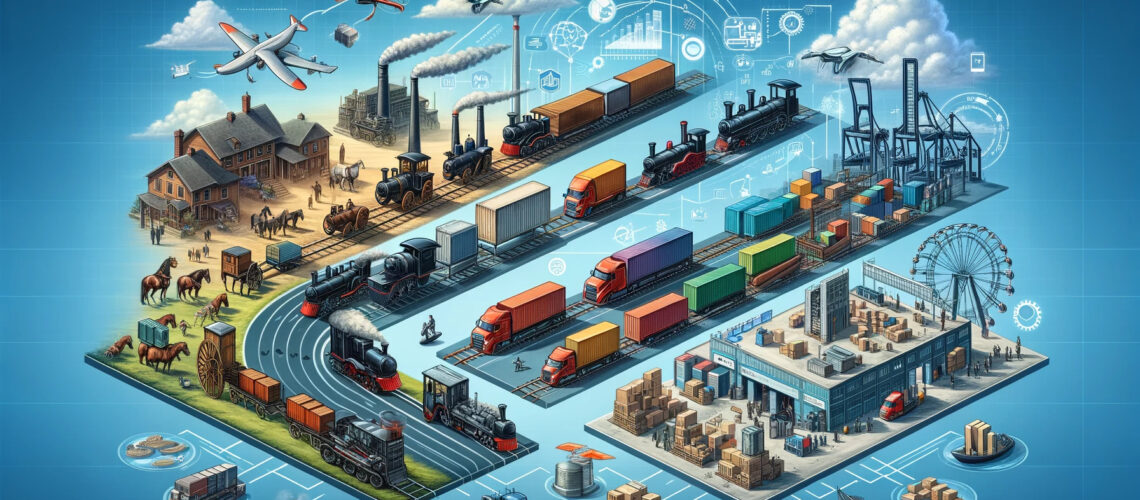The journey of supply chain logistics, from its rudimentary beginnings to the sophisticated networks we see today, is a story of relentless innovation and adaptation. It offers valuable lessons for industry leaders like Kevin Brandes, President and Owner of Cargo Quotes, as they navigate the complexities of modern logistics.
The Birth of Supply Chain Management
Supply chain logistics has its roots in simple trade systems, where the movement of goods was limited by the distance one could travel. The Industrial Revolution marked a turning point, introducing railways and steamships, which expanded the reach of supply chains. These developments underscored the first vital lesson: innovation is the key driver of logistics efficiency.
The Era of Globalization and Technology
The 20th century brought about globalization, drastically changing the landscape of supply chain logistics. The advent of container shipping in the 1950s revolutionized cargo transport, making it more efficient and cost-effective. The introduction of computers and later the internet further transformed supply chains, leading to a more interconnected global economy. This era taught us the importance of embracing technological advancements to stay competitive.
The Modern Complexities of Logistics
Today, supply chain logistics is a complex, technology-driven operation. The use of sophisticated software for inventory management, the implementation of GPS for real-time tracking, and the integration of e-commerce have created highly efficient supply chains. This evolution highlights a crucial lesson: adaptability and flexibility are essential in the face of technological change.
Sustainability and Ethical Practices
One of the most important lessons in the evolution of supply chain logistics is the growing emphasis on sustainability and ethical practices. The logistics industry has a significant environmental impact, and modern companies are now seeking ways to minimize this footprint. Kevin Brandes, with his focus on integrating intelligent transportation systems in logistics, exemplifies this shift towards more sustainable and responsible supply chain management.
The Future of Logistics
As we look to the future, it’s clear that AI and automation will play an even larger role in supply chain logistics. The history of this field teaches us to be prepared for continuous change and innovation. Leaders in the industry must be forward-thinking, ready to adopt new technologies, and adapt to evolving market demands and environmental challenges.
Conclusion
The history of supply chain logistics is a rich tapestry of innovation, adaptation, and learning. It teaches us the importance of embracing change, the necessity of staying ahead of technological advancements, and the growing responsibility towards sustainable practices. As industry leaders like Kevin Brandes continue to navigate this ever-evolving landscape, the lessons from the past provide a roadmap for navigating the complexities of modern logistics.

